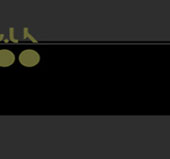@Slavik - what evidence have you got for that statement? I dont think thats the case AT ALL.
@Dirty Bass - Yes, people dont like meddling with the format, but why is that? Because there has been this attitude for so long "Get with the program or you wont get released" make some music that sounds like "this" or "this" and you might get a release. Mainly this was ever thus, journo's, reviewers and DJs like things in easily digestible format as it makes their life easier.
In particuar DJ's like playing a genre as they can learn to manipuate it and it makes playing the records easier to accomplish with some success.
But we have gone beyond that now. Or rather we are moving beyond that... there is now the opporunity to create on the fly and remix on the fly and THAT is the future for DJing. Not to say that all the old skills get abandoned, far from it. Its time DJ's learnt to add skills to their arsenal and get rid, once and for all of the "DJ's are not musicians" bullshit which has hung around them like a bad smell for far too long. (scuse the rhetoric :) )
The digital music market is still young and in terms of global market share this is what the IFPI had to say about 2004.
The BPI had this to sayAccelerated growth in digital sales
2004 was a landmark year for the growth of digital services. Over 180 legitimate music download services were launched globally in 2004. There are now well over 300 sites in total, with at least 200 in Europe.
Music catalogue available on the major services doubled in 2004 to over one million tracks, while subscriber figures now top 2.2 million. Sales of digital music players continue to increase, spurring growth in online music. The launch of 3G services by major operators has given a boost to the download music to mobile market.
In addition, sales of physical product over the internet are growing rapidly reaching 15% in Germany, 10% in the UK and 6% in the US. The internet was the fastest-growing retail channel for CD sales in 2004.
New figures released today by UK record labels association the BPI show that the industry has remained ahead of the curve in digital, with 90% of all singles now sold through online and mobile platforms, while digital album sales are beginning to have a significant impact on the albums market.
With 60 million album sales in the first half of 2007, the UK market remains strong in a time of significant challenges for the global recorded music industry. The CD remains hugely popular with 96.5% of these albums sold as physical product.Dave the D was right, you cant mask good or bad writing. But then what on earth makes anyone think that digital releases will mask good writing? Did everyone suddenly all turn deaf? You know good music when you hear it - and like i said in answer to dave, the opporunities have increased TEN fold, dont be afraid of the rubbbish that will come out, because the opporunities which led to the pile of musical nonsense coming out will lead to WAY more roses growing in the pile of crap.The first half of the year saw digital album sales grow rapidly. Album bundles with extra tracks, videos and sleeve artwork offer excellent value-for-money for consumers, whilst iTunes' variable pricing on album bundles and the "complete my album" facility have all helped to drive album sales. The iTunes Live Music Festival throughout July looks set to give a further boost to the digital albums market.
7Digital launched a consumer-facing store in May with high-quality album bundles and a "downloads locker", a key part of its offering.
Sales soared to more than 2.1 million units during the first half and passed the
100,000 weekly sales mark for the first time in June. This has offset 23% of the drop in CD album sales - a sign that digital sales are starting to have a real impact on the albums market.
But despite the increasing choice available to consumers from digital, many
consumers still prefer the convenience and value for money offered by compilation CDs, sales of which increased by 2.6% in the first six months of the year
All this negativity is being directed towards the situation people believe themselves to be in - one in which they wont earn money from music.
Why?
Is it that we believe technology will make the ability to write music availble to everyone then everyone will write good music? or that they will be swamped by tracks? The music writing process is a long one, there are no shortcuts to it. What people are really afraid of, wether they know it or not is the gobalisation of the world music market. We will start to see music coming out or countries that were never part of what we have now. I firmly believe techno wil change, it always has done and always will do.
I was saying to a friend last night that i personally find it utterly ridiculous that the most negativity i have seen towards technology in music in recent weeks has come from people i know on this forum.... techno heads no less. whats going on? why are we refusing to accept the change? it goes against everything we stand for.
Sure digital labels have a responsibility to release good music, but they will also (like it or not) release within niche genres' because now they can - this is a good thing, this is where new music comes from. innovation, creation and opporunity. If we dont embrace this we will get left behind. simple as.
Welcome to the Blackout Audio Techno Forums :: Underground Network.
 |
 |
 |
 |
Results 1 to 20 of 28
Threaded View
-
13-07-2007, 08:21 AM #5





 Reply With Quote
Reply With Quote